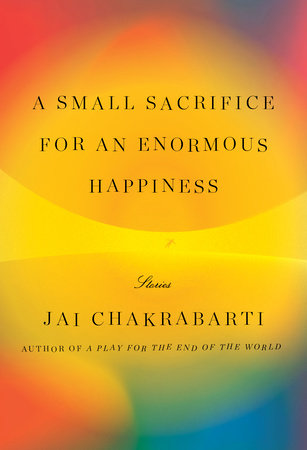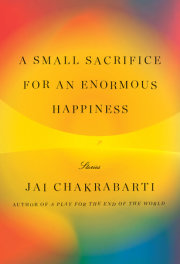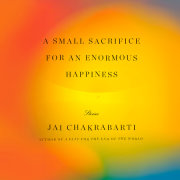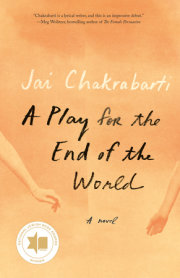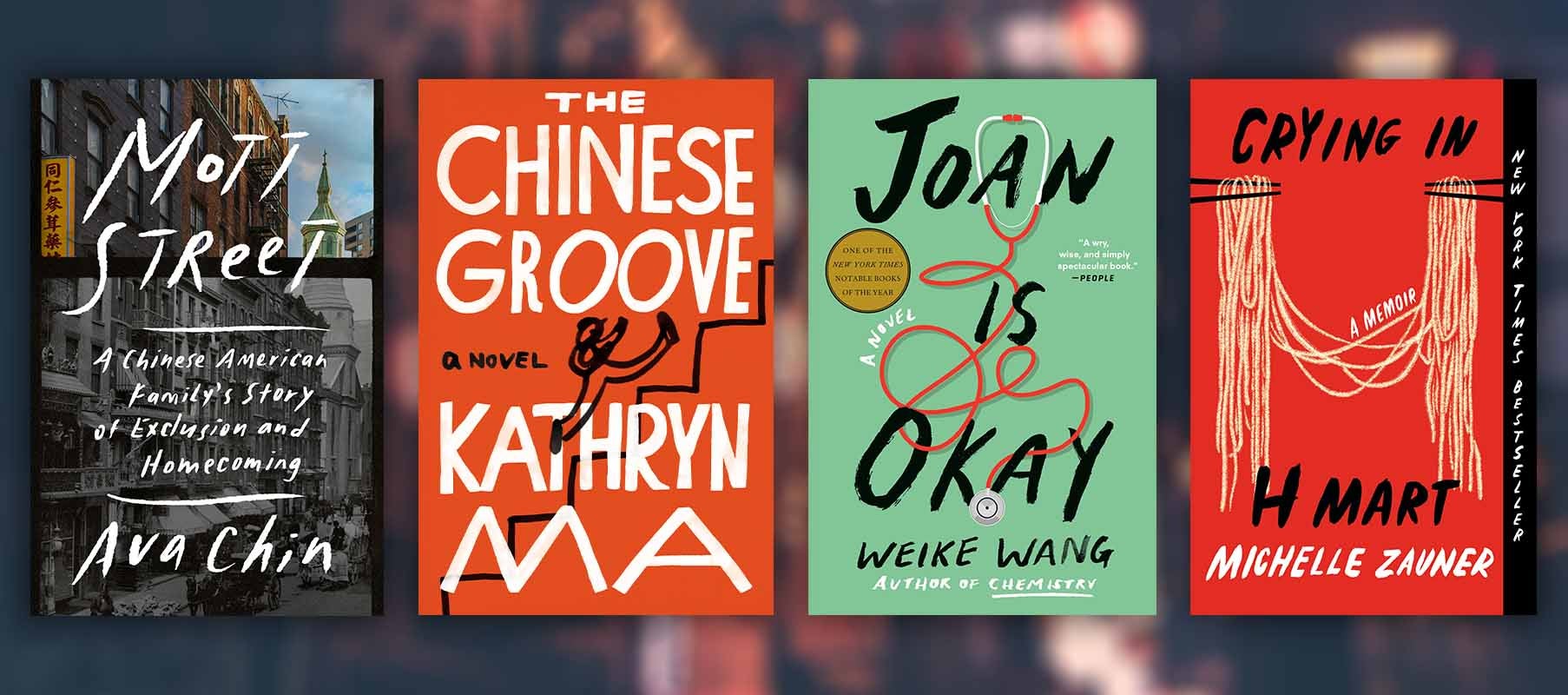A Small Sacrifice for an Enormous Happiness
From his balcony, Nikhil waited and watched the street as hyacinth braiders tied floral knots, rum sellers hauled bags of ice, and the row of elderly typists, who had seemed elderly to him since he’d been a boy, struck the last notes of their daily work. Beside him on the balcony, his servant, Kanu, plucked at the hair that grew from his ears.
“Keep a lookout for babu,” Nikhil shouted to Kanu. “I’ll check on the tea.”
Kanu was so old he could neither see nor hear well, but he still accepted each responsibility with enthusiasm.
The tea was ready, as were the sweets, the whole conical pile of them—the base layer of pistachio mounds, the center almond bars that Nikhil had rolled by hand himself, and on the top three lychees from the garden, so precariously balanced, a single misstep would have upset their delectable geometry.
When he returned to the balcony he saw Sharma walking up the cobbled lane, his oiled hair shining in the late-afternoon light. The typists greeted him with a verse from a Bollywood number—Sharma’s boxer’s jaw and darling eyes reminded the typists of an emerging movie star—and Sharma shook his head and laughed.
Kanu limped downstairs to let Sharma in, and Nikhil waited in the living room while the two of them made their way up.
“And what is the special occasion?” Sharma asked, eyeing the pile of confections with a boyish grin.
Nikhil refused to say. He allowed Sharma to have his fill, watching with satisfaction as his fingers became honey-glazed from the offering.
Afterward, when they lay on the great divan—hand-carved and older than his mother’s ghost—Nikhil breathed deeply to calm his heart. He feared the words would be eaten in his chest, but he’d been planning to tell Sharma for days, and there was no going back now. As evening settled, the air between them became heavy with the sweetness of secrecy, but secrecy had a short wick.
“My dearest, fairest boy,” he said. “I want our love to increase.”
Sharma raised his eyebrows, those lines thickly drawn, nearly fused. Who better than Sharma to know Nikhil’s heart?
“I desire to have a child with you,” Nikhil said.
Nikhil had trouble reading Sharma’s expression in the waning light, so he repeated himself. His fingers were shaking, but he took Sharma’s hand anyway, gave it a squeeze.
“I heard you the first time,” Sharma said.
A rare cool wind had prompted Nikhil to turn off the ceiling fan, and now he could hear the rum sellers on the street enunciating prices in singsong Urdu.
He touched Sharma’s face, traced the line of his jaw, unsure still of how his lover had received his news. Likely, Sharma was still mulling—he formed his opinions, Nikhil believed, at the pace the street cows strolled.
Nikhil waited out the silence as long as he could. “Listen,” he finally said. “The country is changing.”
“A child diapered by two men,” said Sharma. “Your country is changing faster than my country is changing. What about the boys from Kerala?”
They had learned about a schoolteacher and a postal clerk who had secretly made a life together. Unfashionably attired and chubby cheeked, they seemed too dull for the news. A few months ago, locals threw acid in their faces. Even in the black and white of the photographs, their scars, along the jaw, the nose, the better half of a cheek. Ten years since man had landed on the moon, and still.
“We are not boys from Kerala. We are protected.”
No ruse better than a woman in the home, Nikhil had argued over a year ago, and eventually Sharma had agreed to a marriage of convenience. Kanu, who had loved Nikhil through his childhood and even through his years of chasing prostitutes, had arranged for a village woman who knew about the two men’s relationship but would never tell.
Nikhil rummaged through his almirah and returned with a gift in his hands. “You close your eyes now.”
“Oh, Nikhil.” But Sharma did as he was told, accustomed now perhaps to receiving precious things.
Around Sharma’s neck, Nikhil tied his dead mother’s necklace. It had been dipped in twenty-four carats of gold by master artisans of Agra. Miniature busts of Queen Victoria decorated its circumference. A piece for the museums, a jeweler had once explained, but Nikhil wanted Sharma to have it. That morning, when he’d visited the family vault to retrieve it, he’d startled himself with the enormity of what he was giving away, but what better time than now, as they were about to begin a family?
“Promise you’ll dream about a child with me.”
“It is beautiful, and I will wear it every day, even though people will wonder what is that under my shirt.”
“Let them wonder.”
“You are entirely mad. Mad is what you are.”
Nikhil was pulled back to the divan. Sharma, lifting Nikhil’s shirt, placed a molasses square on his belly, teasing a trail of sweetness with his tongue. Nikhil closed his eyes and allowed himself to be enjoyed. Down below, the rum sellers negotiated, the prices of bottles fluctuating wildly.
Afterward, they retired to the roof. Their chadors cut off the cold, but Nikhil still shivered. When Sharma asked what the matter was, Nikhil kissed the spot where his eyebrows met. There was another old roof across the street, where grandmothers were known to gossip and eavesdrop, but he did not care. Let them see, he thought, let them feel this wind of enormous change.
The next morning, while Sharma washed, Nikhil said, “I want you to toss the idea to your wife. Get Tripti used to the matter.”
Sharma dried himself so quickly he left behind footprints on the bathroom’s marble floor. “Toss the idea to my wife. Get her used to the matter,” Sharma repeated, before he changed into his working clothes, leaving Nikhil to brood alone.
Tripti would have few issues with the arrangement of a child, Nikhil believed. After all, at the time of her marriage to Sharma, her family was mired in bankruptcy, her father had left them nothing but a reputation for drink and dishonesty, and she herself—insofar as he recalled from his sole meeting with her, at the wedding—was a dour, spiritless creature who deserved little of the bounty that Nikhil had provided her. What little else he knew was from Kanu’s reports. Extremely pliable, Kanu had first said. Then, closer to the wedding: little stubborn about the choice of sweets. She wants village kind. On that note, Nikhil had wilted—let her have her desserts, he’d said, the wedding paid for, and the matter removed from mind.
The next few days, when Sharma was away at the village and at the foundry, Nikhil paced around the house, overcome by the idea of a child. He’d always dreamed of becoming a father but had never believed it would be possible until this year’s monsoon, when, in the middle of a deluge, his forty-two-year-old sister had given birth to a girl. The rain had been so fierce no ambulance could ferry them to the hospital, so the elderly women of the family assumed the duties of midwifery and delivered the child themselves. The first moment he saw his niece he nearly believed in God and, strangely, in his own ability—his right—to produce so perfect a thing.
He couldn’t bring Sharma to his sister’s house to meet his new niece, so the next week he’d spent their Thursday together sharing photos; if Sharma experienced the same lightness of being, he didn’t let it show. All he said was, “Quite a healthy baby she is.”
It was true. She’d been born nine pounds two ounces. The family had purchased a cow so that fresh milk would always be available.
• • •
Nikhil convinced himself that he had opened Sharma’s heart to the idea of becoming a father, but the exuberance of this conclusion led to certain practical questions. Sharma’s wife would carry the child, but where would the child live? In Sharma’s house in the village, or in Nikhil’s house here in the city? If she lived in the village, which Nikhil admitted was the safer option, how would Nikhil father her, how would she receive a proper education?
These questions consumed the hours. When he went to check on his tenants, he was distracted and unable to focus on their concerns. A leaky toilet, a broken window, the group of vagrants who’d squatted outside one of his properties—all these matters seemed trivial compared to his imagined child’s needs.
The next week, the afternoon before he would see Sharma again, he stepped into a clothing store on Rashbehari Avenue to calm his mind. It was a shop he’d frequented to purchase silk kurtas for Sharma or paisley shirts for himself. He told the attendants he needed an exceptional outfit for his niece. They combed the shelves and found a white dress with a lacy pink bow. He imagined his own daughter wearing it. From his dreaming he was certain a girl would come out of their love—Shristi was what he’d named her—Shristi enunciating like a princess, Shristi riding her bicycle up and down Kakulia Lane.
Early on, they’d agreed that Nikhil would avoid the foundry, but he was feeling so full of promise for Shristi that he did not deter himself from continuing down Rashbehari Avenue toward Tollygunge Phari, nor did he prevent himself from walking to the entrance of Mahesh Steel and asking for his friend.
Sharma emerged from the uneven music of metalworking with a cigarette between his lips. His Apollonian features were smeared with grease. His hands were constricted by thick welding gloves, which excluded the possibility of even an accidental touch. When he saw Nikhil, Sharma scowled. “Sir,” he said, “you’ll have the parts tomorrow.”
Though he knew Sharma was treating him as a customer for good reason, the tone still stung. Nikhil whispered, “See what I have brought.” He produced the perfect baby girl dress.
“You have lost your soup,” Sharma whispered back. Then, so everyone could hear, “Babu, you’ll have the parts tomorrow. Latest, tomorrow.”
Nikhil tried again: “Do you see the collar, the sweet lace?”
“You should go to your home now,” Sharma said. “Tomorrow, I’ll see you.”
But that Thursday Sharma failed to visit. Nikhil and Kanu waited until half past nine and then ate their meal together by lamplight.
Copyright © 2023 by Jai Chakrabarti. All rights reserved. No part of this excerpt may be reproduced or reprinted without permission in writing from the publisher.

